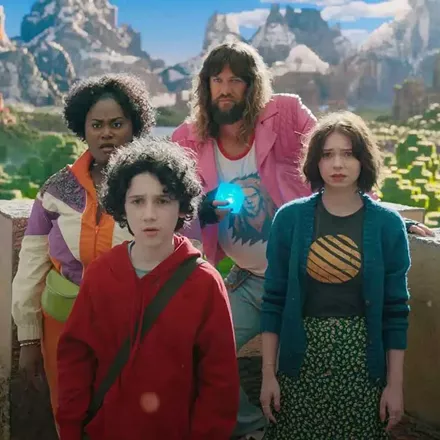Every time there's a slump in the box office, culture sites are cluttered with op-eds about the looming death of the movie theater. And every time this has happened, a movie with broad mass appeal opens on 3,000 screens a few weeks later, there's a sudden spike in ticket sales, and everyone forgets that they had been sounding alarm bells the week before. It's the same old song and dance.
This time, though, the threat seems real.
Concerns about the coronavirus have rightfully closed down theaters all over the country, just like so many other brick-and-mortar businesses. Restaurants, bars, casinos and clubs will all eventually reopen, and eventually operations will return to normal. But could the movie theater, a business model that has been teetering on the precipice of obsolescence for so long, actually recover? If economic prospects are as dire as reported, could this pandemic also wipe out an entire cinematic industry that has been around since the birth of the artform?
I hope that isn't the case. I spend a couple hundred hours a year in movie theaters. Even when I go to the movies alone, I'm still surrounded by other people: It's one of the few activities that's simultaneously communal and solitary. It's only been a couple weeks since the COVID-19 outbreak shuttered theaters, and I miss them already. It's just part of my routine. And I've been bracing for the final nail in the coffin, the thing that finally sends the final reel spooling through the proverbial projector.
But this is hardly the first time the model of theatrical distribution has been endangered. It happened in the '30s when radios became a staple of every middle-class American living room, and again in the '50s when radios were swapped out for TV sets. In the '80s, VCRs proved the greatest threat, as did video store chains like Blockbuster that popped up in strip malls around the country. In the mid-2000s, mail-order DVD services like Netflix made movie rental even simpler, and then streaming suddenly made physical media seem like a Stone Age technology.
It has survived all of that. Will it survive this?
It's not just theaters, either. The reverberations will be felt everywhere in the film industry. Not only are releases being delayed (which throws off studios' prescribed schedules), but productions all over the world are being halted. Some will probably never pick back up again.
Film festivals are also being canceled: First it was SXSW, then Tribeca and the Seattle International Film Festival, and (finally, mercifully) Cannes, the granddaddy of them all. Because so many prestige films come out of festivals — just last year, Oscar winners like Parasite, Marriage Story, Jojo Rabbit and Joker first started generating buzz at various film festivals — what will the rest of the movie year look like?
Major studios are already taking serious measures to turn a profit on their products that were kneecapped by the virus. Recently released titles like The Invisible Man, The Way Back and Emma have already made their way to VOD platforms, and the previously scheduled April 10 release Trolls: World Tour will instead premiere online. Kino Lorber, a distributor that has always focused on international films, has devised a unique platforming method: Indie theaters that had already planned to screen their new film Bacurau can now "host" a digital release of the film, allowing viewers to buy a ticket for a "screening" through that theater and watch it online.
Expect smaller distributors like A24, Neon and Searchlight Pictures, which rely on arthouse audiences (usually in big cities) to recoup the budgets of their decidedly non-mainstream titles, to take on similar strategies.
Theater chains have been pushing back on the notion of day-and-date releasing, the method by which films are available in theaters and on-demand platforms simultaneously, for years now. Exclusivity is the bread-and-butter of the movie theater industry. They'll likely have to rethink that position to stay alive.
And when theaters finally do reopen after the craziness dies down, will people go back? Will they spend their remaining disposable income on a night out at the movies, or save it for more pressing matters? Will they have missed the communal experience and flock to their nearest multiplex, or will their weeks in self-isolation make them realize they prefer staying at home that much more?
Look, there are a lot of reasons that movie theaters are archaic. As long as there have been audiences, there have been annoying people that ruin the experience for everyone else — talking too loud, rustling endless candy wrappers, illuminating the room with their phone. You have to sit through a string of commercials for other movies before yours starts, like a non-skippable ad before a YouTube video. And concessions, where theaters make all their profits, are so expensive you'll have to take out a second mortgage on your house in order to feed your family.
But in a weird way, I'm starting to miss all those things, all the minor inconveniences that make the theatrical experience an experience. Going to the theater can be a magical experience, one you'll never be able to recreate at home, no matter how good your home screen and sound system are.
So, here's what you should do. If you care about the future of movie theaters, patronize them as soon as they reopen. AMC and Regal both have apps with benefits and discounts for frequent guests — sign up. Our local arthouse theater the Magic Lantern is a boon to our community, booking foreign films and documentaries and indie titles that wouldn't otherwise play in town. Buy a gift certificate from them, and visit them often.
Regardless of what happens, movies will keep getting made and people will still find ways to watch them. And so many of us will keep going back, like moths to a flame, to the allure of moving images flickering in the dark room. ♦




























